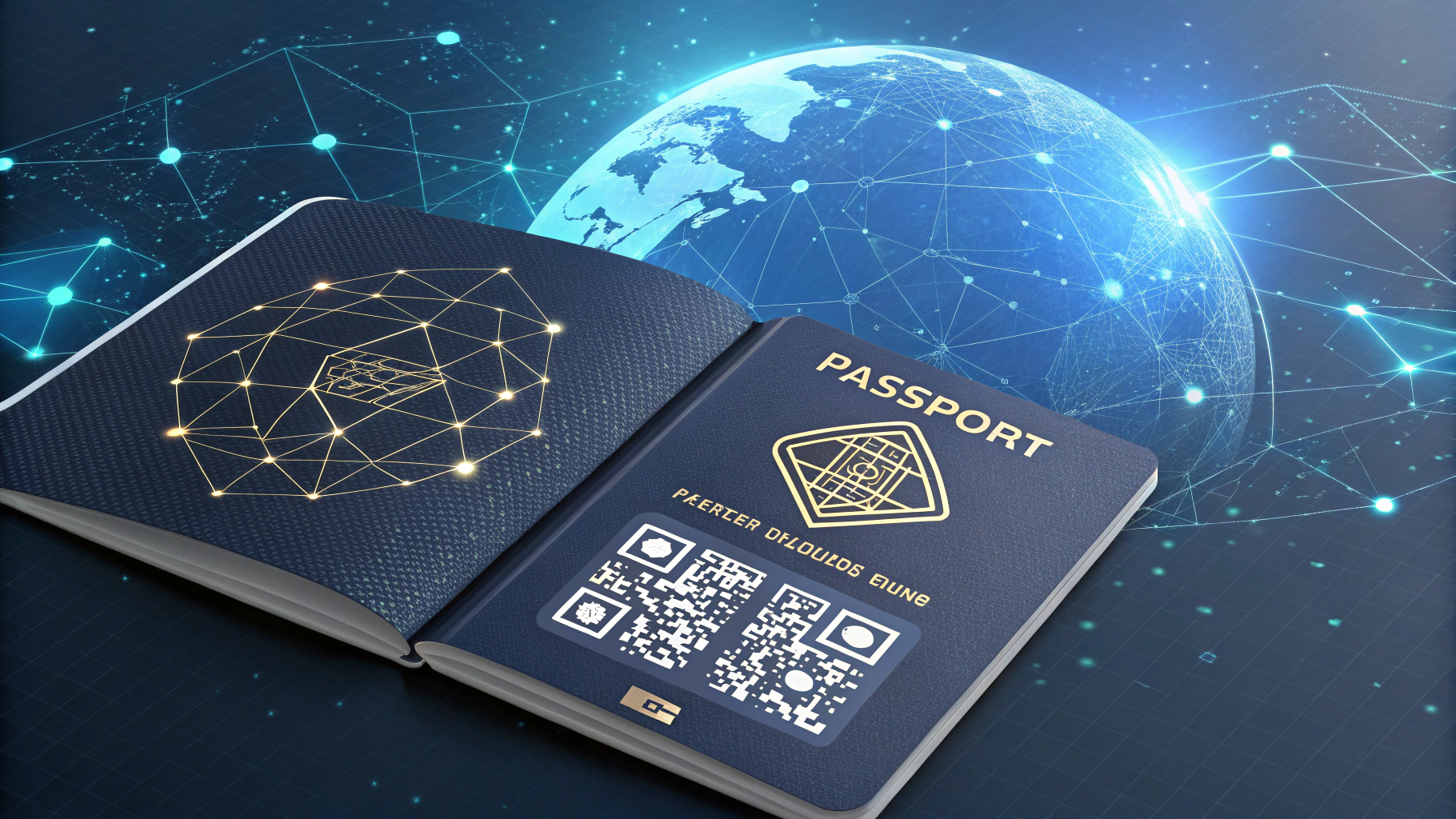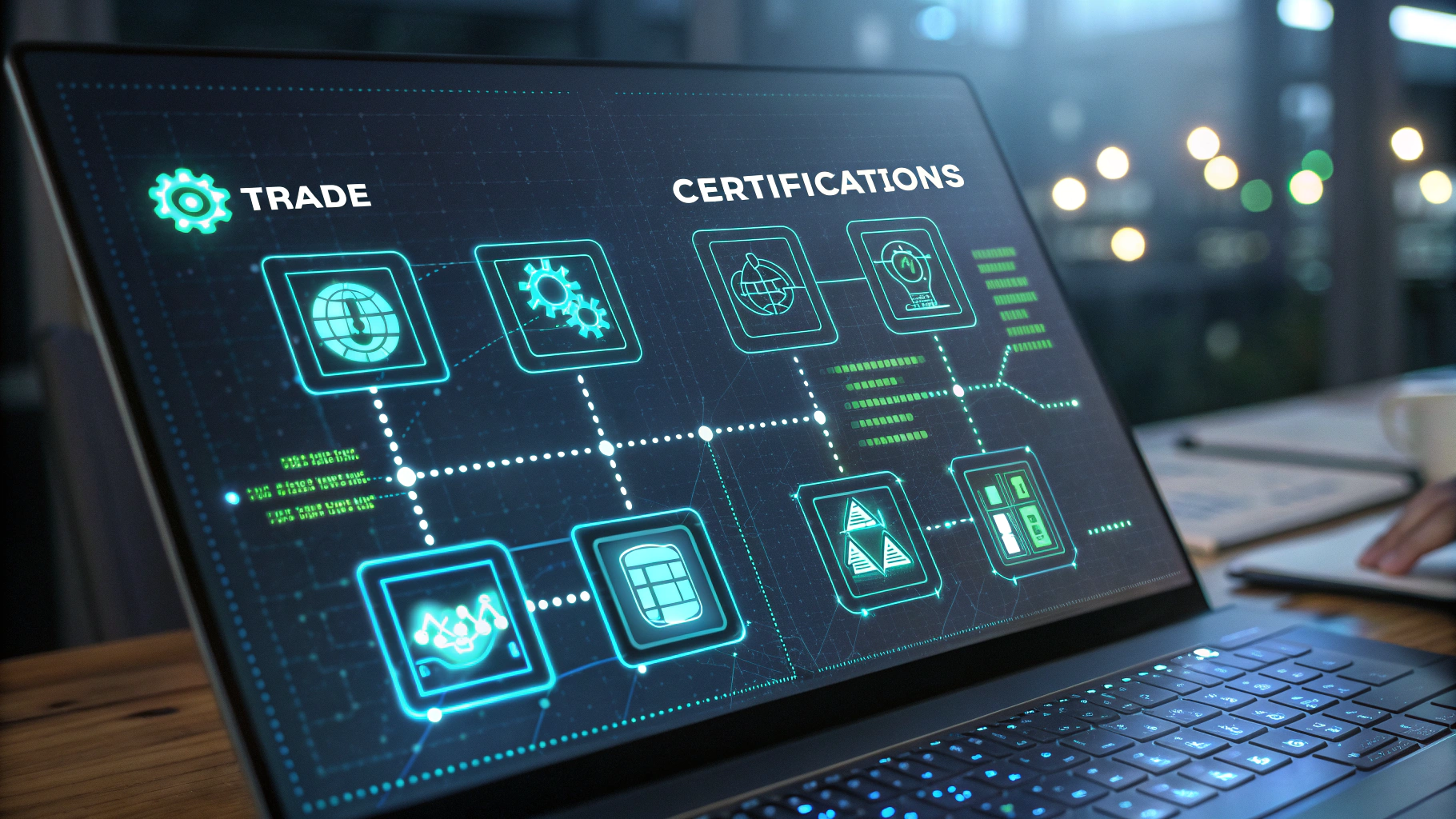Introduction: Rewriting the Rules of Workforce Trust
The old saying "it's not what you know, it's who you know" is being flipped on its head in the trades industry. Today, verifiable skills matter more than connections or paperwork and blockchain technology is making that possible. Consider José Martinez, a Miami contractor who faced $200K fines last year after counterfeit HVAC certifications caused hospital ventilation failures. Unfortunately, José's situation isn't an isolated incident. In 2024 alone, nearly a quarter of companies faced penalties due to certification issues, adding up to $4.3 billion in industry-wide costs [3].
This is where blockchain comes in. Think of it as a digital filing cabinet that no one can tamper with, every certification, from welding apprenticeships to cross-border electrical licenses, gets recorded in a way that's transparent and instantly verifiable. We're looking at how this technology is turning credential verification from a paper-shuffling headache into a real-time system that even the biggest skeptics are starting to trust.

Section 1: The Certification Crisis Demanding Digital Solutions
When Paperwork Fails People
Global trade compliance now requires juggling 200+ annual regulatory updates, from EPA refrigerant rules to Vietnam’s new data localization laws [3]. The fallout is brutal:
-
Dynamic Compliance Traps: A Michigan HVAC contractor valid in the U.S. faced EU fines for outdated refrigerant handling credentials, unaware of changes buried in Brussels’ 1,200-page Q2 2025 update [3].
-
The Verification Time Sink: Construction firms waste 50+ monthly hours checking licenses across 17 different state portals, with 8.3% of apprenticeships involving forged records [4]1.

India’s Skill India Digital platform offers hope, issuing 1.2 million blockchain welder certificates in 2024. Verification costs dropped 73% as employers scanned QR codes instead of mailing notarized forms [GLOBAL EXAMPLE].
Section 2: Blockchain’s Blueprint for Trustworthy Apprenticeship Tracking
How Digital Apprenticeship Tracking Works
The Arizona Pipe Trades Academy ditched paper logs for a node network spanning 32 training centers. When apprentices complete milestones like OSHA 30-hour training:
- Instructors sign records with private keys
- Entries get digitally fingerprinted (using SHA-256 tamper-proof chains)
- Employers see timelines tracing back to enrollment day 2
"Before blockchain, we lost 3 weeks yearly chasing fake welding certificates," says Sarah Kim, a Phoenix training director. "Now? Fraud-proof records overnight."

The German Model: Precision Meets Privacy
Germany’s Facharbeiter system combines two technologies:
This hybrid approach reduced credential disputes by 81% in auto manufacturer audits 4.
Section 3: Secure Credentials in Action – From Theory to Toolbelts
MIT’s Blockcerts: Killing Counterfeits
MIT’s blockchain platform became the blueprint for trade unions after piloting with plumbers:
| Innovation |
Real-World Impact |
| Unforgeable Digital Stamps |
Eliminated Photoshop certificate scams |
| 3-Year Auto-Expiry |
Revoked 214 lapsed licenses in 2024 |
| Mobile Credential Wallets |
Electricians manage 6+ certifications across states |
Florida’s Licensing Leap
Blockchain let Florida health officials stamp 134,000+ medical trade licenses in 2024:
- 7-Day Faster Processing: 11-day average issuance beat paper’s 18-day crawl 5
- QR Code Revolution: Contractors scan licenses in <3 seconds, slashing reciprocity disputes with Georgia/Alabama by 92% 6
- Crisis Averted: Real-time suspension of 47 compromised licenses during Q1’s ransomware attacks
Section 4: Regulatory Evolution – From Courtrooms to Code
Smart Contracts Meet State Laws
Australia’s TradeChain automates carpentry credential updates via Hyperledger Fabric:
-
Validates 4-year apprenticeships against 13 checkpoints
-
Issues machine-readable certificates accepted by 83% of Asian-Pacific contractors 7
-
Syncs with new building codes instantly

Post-Vermont’s 2022 Blockchain Business Act, courts accept credential timestamps as legal proof. This precedent resolved 47 trade disputes, including a $2M arbitration over disputed crane operator certs 8.
The GDPR Dilemma Solved
IBM’s Global Trade Trust Framework (GTTF) reconciles EU privacy laws with Vietnam’s data rules through:
- ISO 17024-compliant schemas
- API bridges linking blockchains to legacy HR systems
- Consortium governance balancing corporate and labor inputs 9
Section 5: Upskilling for the Blockchain Era
Education’s Hands-On Shift
The Blockchain Credentialing Collective trains through:
- VR Simulations: 43% of plumbing examiners used these to master verification tools [BCC 2024]
- On-Chain Skill Badges: Welders embed technique videos in credential metadata
- Corporate Partnerships: Siemens matches blockchain-certified electricians to projects in real time
Energy vs. Innovation
While Arizona’s solar installer network uses eco-friendly blockchains, Bitcoin-based systems still consume 18M kWh yearly. > "We offset 200% via carbon credits," notes renewable energy certifier Luis Gómez 10.
Conclusion: Skills on the Blockchain – Your Career’s FedEx Tracker
Digital apprenticeship tracking ensures every working hour and OSHA course lives in an unforgeable chain. Like tracking a FedEx package, workers now prove competencies from Texas shipyards (2018) to Tokyo construction sites (2025).
Of course, there are still hurdles to overcome. Public blockchains consume significant energy, and data privacy regulations differ from country to country. But the potential is clear, Arizona's solar industry has seen 37% growth partly because blockchain technology makes it easier to verify and transfer skilled workers' qualifications across projects.
Looking ahead, we're moving toward a system where workers will control their own digital credentials, much like managing a digital wallet. Trade certifications will function as universal passports, recognized across borders, languages, and economic changes. In this new world, paperwork rusts. Skills endure.

